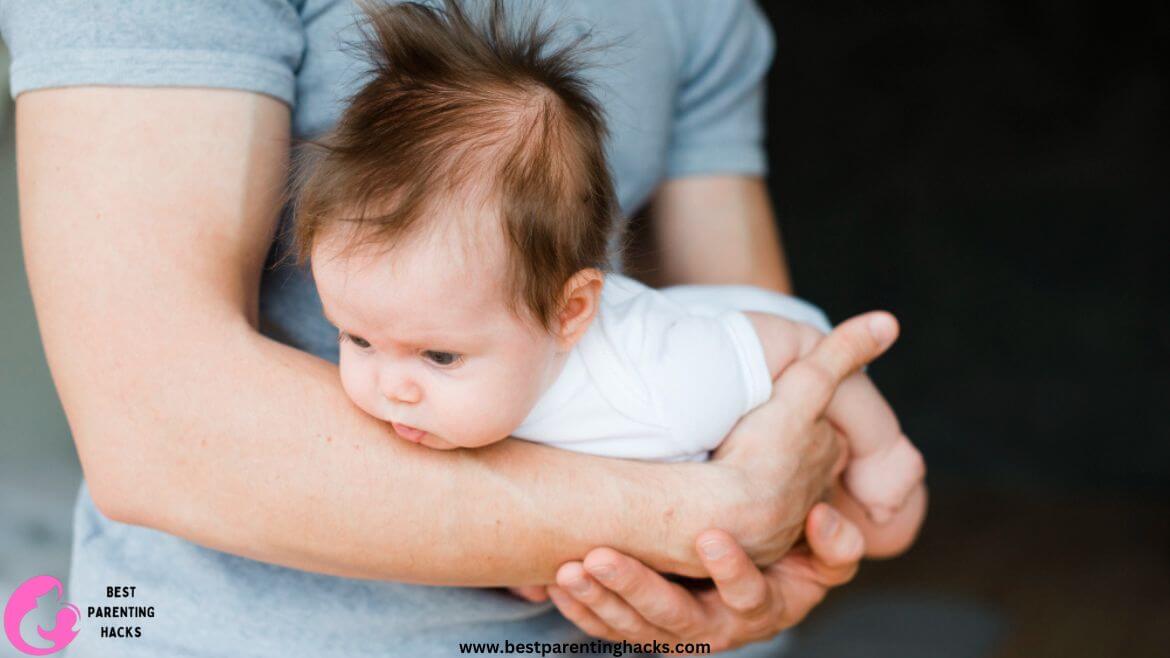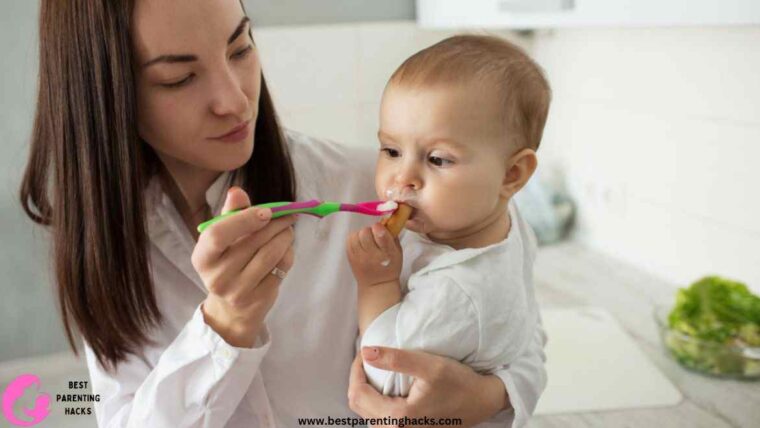Table of Contents
I’ve negotiated the intricate and frequently unpredictable world of baby care as a mom, where every day offers a fresh learning opportunity or difficulty. A baby’s dislike of having their head handled is one such puzzling habit I’ve been across. This seemingly little motion might cause everything from minor pain to hysterical sobs. This is a habit that many parents find concerning in addition to being perplexing. Why do certain newborns take offense at something as basic as a soft head pat? Is this an indication of anything more serious, or is it just a peculiarity in their evolving tastes?
The title of this article, “Baby Doesn’t Like Head Touched: What’s the Reason??” begs a response that is not easily found. There are other variables at work, including emotional reactions, contextual influences, developmental phases, and physical sensitivity. Since every infant is different, there might be a broad range of reasons why they dislike head contact. It’s important to realize, though, that this behavior is usually normal for an infant’s developmental stage and should not be taken too seriously. In the parts that follow, we’ll go more deeply into the many facets of this behavior, investigating potential causes, addressing typical parental worries, and providing advice and guidance based on both expert counsel and firsthand knowledge.
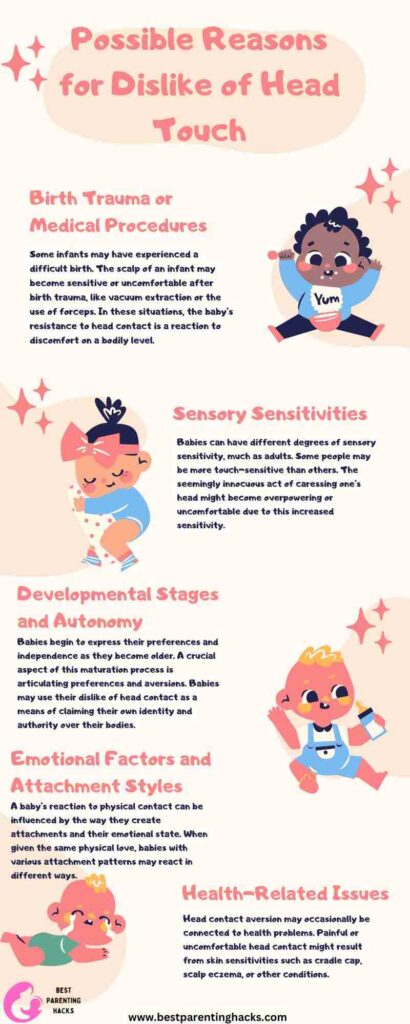
Possible Reasons for Dislike of Head Touch
1. Birth Trauma or Medical Procedures: Some infants may have experienced a difficult birth. The scalp of an infant may become sensitive or uncomfortable after birth trauma, like vacuum extraction or the use of forceps. In these situations, the baby’s resistance to head contact is a reaction to discomfort on a bodily level.
2. Sensory Sensitivities: Babies can have different degrees of sensory sensitivity, much as adults. Some people may be more touch-sensitive than others. The seemingly innocuous act of caressing one’s head might become overpowering or uncomfortable due to this increased sensitivity.
3. Developmental Stages and Autonomy: Babies begin to express their preferences and independence as they become older. A crucial aspect of this maturation process is articulating preferences and aversions. Babies may use their dislike of head contact as a means of claiming their own identity and authority over their bodies.
4. Emotional Factors and Attachment Styles: A baby’s reaction to physical contact can be influenced by the way they create attachments and their emotional state. When given the same physical love, babies with various attachment patterns may react in different ways.
5. Health-Related Issues: Head contact aversion may occasionally be connected to health problems. Painful or uncomfortable head contact might result from skin sensitivities such as cradle cap, scalp eczema, or other conditions.
You Might Also Like to Read: How Many Words Should a 17-month-old Say?

Understanding Babies’ Sensitivity to Head Touch
In the early years of their lives, babies are always learning new things and adjusting to their surroundings. The way they react to various stimuli might offer us insight into their comfort zones and inclinations. Several elements influence how sensitive their skull is to touch.
1. Sensory Processing: A baby’s capacity for sensory processing is still growing. Their neurological system is developing its ability to recognize and react to touch among other inputs. Some babies may find the feeling of getting their head stroked to be too strong or painful, which might cause them to respond negatively.
2. Physical Discomfort: A baby’s skull can be sensitive, particularly in the early months of life. Their head’s fontanelles, or soft patches, are delicate places. An infant may connect head contact with discomfort if they have ever encountered any kind of discomfort in these places, either via a tight cap or a hard shampooing experience.
3. Developmental Phases: Babies experience several developmental phases as they grow. Their interests and actions may vary during different stages. A dislike of head contact might just be a phase in which they are learning to communicate their likes and dislikes and explore autonomy.
4. Environmental Influences: A baby’s response to head contact can also be influenced by the surroundings in which they are nurtured. They may find the feeling strange and uncomfortable if they are not accustomed to having their heads stroked frequently.
You Might Also Like to Read: Can My Baby Sleep in Snuggle Me?
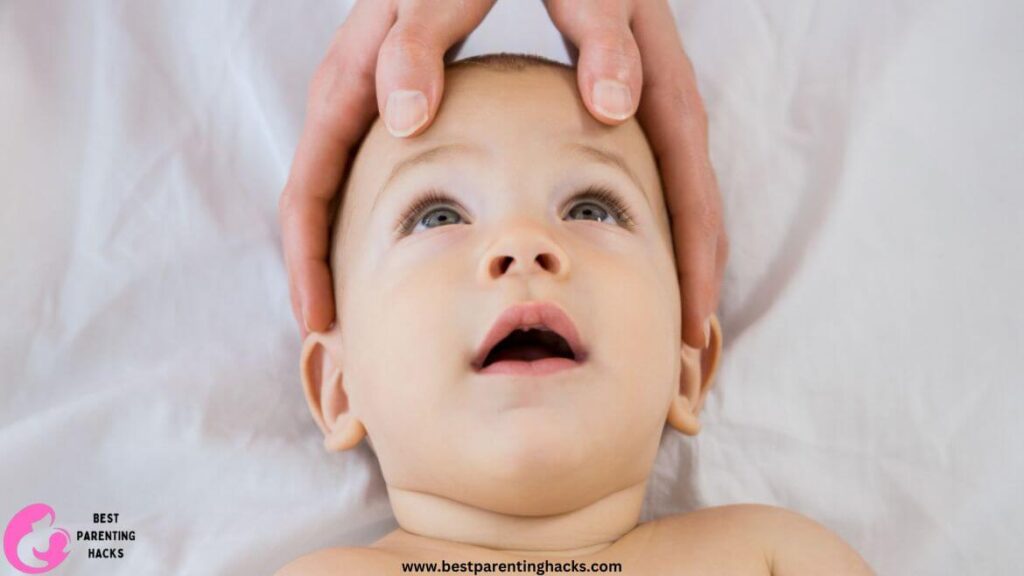
Parental Concerns and Misconceptions
Experiencing anxiety over every facet of your child’s behavior is common for parents, especially if it diverges from your idea of what’s ‘normal’. A baby’s dislike of head contact might give rise to several worries and misconceptions.
1. Is It a Sign of a Developmental Issue? A lot of parents are concerned that their child’s resistance to head contact may be a sign of a developmental issue. However, this conduct is typically a natural aspect of their development rather than an indication of a problem with their development.
2. Am I Doing Something Wrong? Parents may also question whether they have any part in this conduct. It’s critical to realize that a baby’s aversion to head contact is often influenced by its preferences and sensitivities rather than by actions on the part of its parents.
3. How Will This Affect Bonding? Bonding concerns are prevalent. Parents may worry that emotional attachment may be hampered if they are unable to touch their child’s head. But bonding is a complex process that goes much beyond simple physical contact.
4. Is This Permanent? Another frequent concern is whether this head-touch aversion is a lifelong characteristic. Usually, it’s only a stage that ends as the child gets older and their tastes change.
5. Should I Force Head Touch to Desensitize My Baby? A parent or two may think about doing just that to help their child become used to head contact. This strategy, nevertheless, has the potential to backfire and enhance aversion and discomfort.
Professional Insights and Advice
1. Gradual Desensitization: Experts typically advise a gradual approach to help a baby become desensitized to head touch. This entails gradually introducing the sensation in a comforting and non-threatening way.
2. Respecting Boundaries: It’s important to honor the baby’s boundaries and reactions. Pressuring the baby to have head contact can cause negative associations and heightened aversion.
3. Alternative Affection Methods: Experts advise employing non-intrusive methods of demonstrating affection, like as cuddling, gentle conversing, and smiling, to foster a stronger bond with the baby while honoring their dislike of head touch.
4. Consulting Healthcare Providers: If the baby’s reaction to head touch worries you, speaking with a pediatrician or a kid development specialist can offer assurance and guidance.
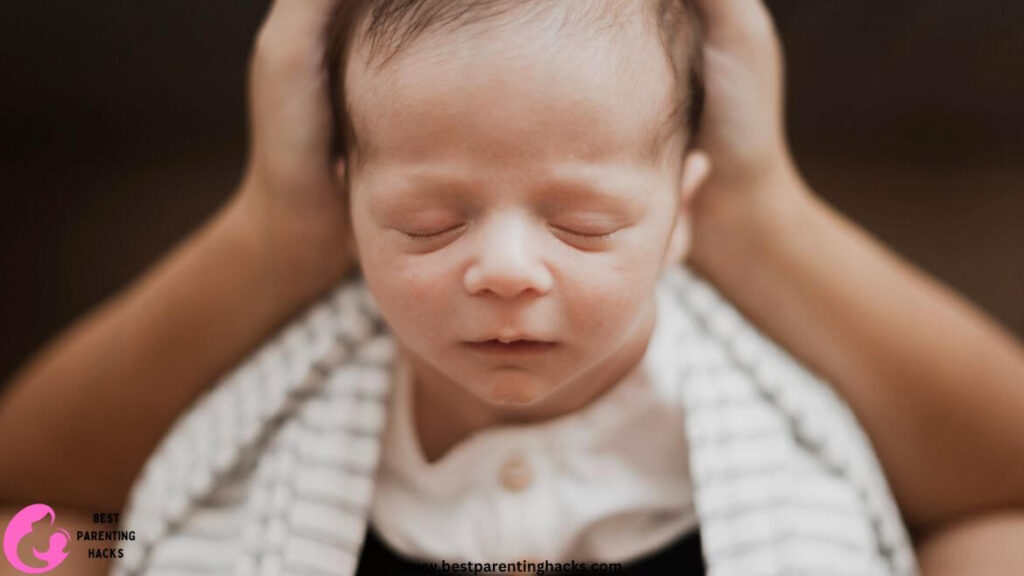
My Personal Reflections and Tips
As I think back on my experience as a parent, I’ve discovered how crucial it is to navigate a baby’s preferences with compassion and understanding. Using my own experiences as a guide, here are some tips:
1. Observation and Adaptation: Be mindful of your infant’s cues and modify your strategy as necessary. If they appear uneasy when you touch their head, try engaging with them in various ways and showing them affection.
2. Creating a Comfortable Environment: When a baby tries to touch their head, make sure they are in a familiar and comfortable space. They may feel more at ease and open as a result.
3. Using Distraction Techniques: Occasionally, a fun activity or the use of a distraction might help the infant become more receptive to head touches.
4. Empathy and Patience: It’s critical to have both these qualities when it comes to your baby’s preferences. Any worries can be reduced by realizing that this is a phase and an aspect of their uniqueness.

Conclusion
In summary, a baby’s aversion to having their head handled is a complex problem that can result from a range of physiological, psychological, and developmental reasons. Parents must respond to this conduct with patience and understanding. It’s important to keep in mind that every infant is different and will have preferences and dislikes of their own.
Even if they would rather not have their heads touched, we can make sure that our infants feel safe and loved by honoring their limits, modifying our methods, and getting expert assistance when needed. In the end, parenting is a journey in which we must learn to meet our children’s requirements, and this is only one of the numerous challenges we face when raising our children.
FAQs
1. Is it normal for babies to dislike head touch? Yes, that is a typical baby behavior and typically not a reason for alarm.
2. Could a baby’s aversion to head contact be brought on by birth trauma? Indeed, a baby’s scalp may become sensitive after birth trauma such as a vacuum suction.
3. How can I encourage my infant to touch my head? It might be beneficial to gradually desensitize and honor the baby’s boundaries.
4. Is it cause for concern if my child objects to having their head touched? Most of the time, it’s a typical stage of growth, but if you’re worried, speak with your pediatrician.
5. Is a baby’s aversion to head contact a sign of a sensory problem? It’s not necessarily an indication of sensory sensitivity, although it may be.
6. How can I try to desensitize my infant to head contact while still honoring their boundaries? Never push contact; instead, take their cues and introduce it softly.
7. Can a baby’s response to head contact be influenced by their emotions? Yes, their reaction to physical affection can be influenced by attachment types and emotional circumstances.

